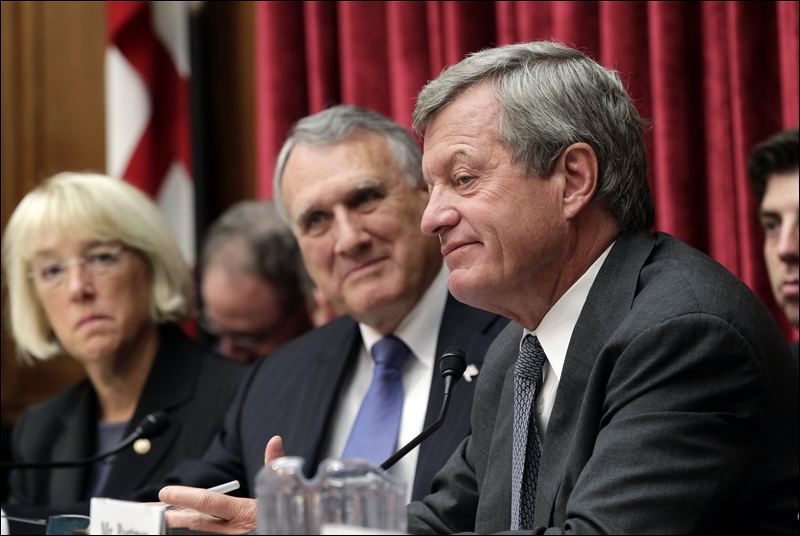$1.2 Trillion in Cuts is Not Enough

Everyone has an opinion on what the Joint Select Committee on Deficit Reduction (JSC) will produce by its Nov. 23rd deadline.
Except the members and staff of the JSC itself.
Rumors abound that the Republicans on the committee have already made a comprehensive offer to the Democrats. The offer seems quite straight-forward: Republicans will cap some tax loopholes in exchange for fundamental re-structuring of Medicare and reform of Medicaid.
Yet, if one reads the Washington Post editorial page over the weekend, one would think that it is only Republican tax allergies that have kept the JSC from reaching agreement.
In truth, both sides have shibboleths.
Any mention of fundamental reform of Medicare and Medicaid triggers the response that “Republicans want to throw Granny off the cliff.” Mention tax increases and Republicans respond with, “Tax and spend, tax and spend.”
President Obama essentially slipped out the side door of the great fiscal follies when he failed to endorse the recommendations of the fiscal commission that he, created.
Democrats have made an offer—raise some taxes, tinker with the non-beneficiary part of Medicare, and throw in a little bit of other slop to get beyond the required $1.2 trillion mandate of the JSC deliberations.
Republicans responded, quite accurately, that no fundamental changes in the Medicare structure were in the Democratic plan. Without Medicare reform, no tax increases, House Speaker John Boehner retorted.
The simpler things are in politics, the more clear-cut and logical the choices, the more difficult decisions become. The Budget Control Act, which created the JSC, hammered discretionary, appropriated accounts. But as everyone realizes, that is a small part of the budget and almost not any part of the debt crisis looming ahead.
It is hard to trim, fudge, or confuse the basic arithmetic of taxes and entitlements. We have a tax code that compels even Treasury officials to use outside help in order to file their taxes properly. We have made entitlement promises that clearly are beyond the ability of politicians to honor. We have an economy that is growing so slowly that it cannot accommodate new entrants into the work force, let along significantly reduce unemployment.
So in order to avoid the clear-cut, and hard, choices, Congress and the President have either walked away (to Bali this week, in the President’s case; back home to see district voters in the House’s case), or produced “talking point” proposals that merely begin the elections in earnest.
So while the JSC may produce some form of $1.2 trillion reduction in deficits over the next decade, those savings will yield almost no significant change in the nation’s debt trajectory. With Europe in financial turmoil once again, global investors are retreating into the relative safety of U.S. Treasury issuance. After a while, after the Greek, Italian, German, French governments fall as a result of political weakness and temporizing on their versions of entitlements, then global bond traders will begin to demand higher and higher returns on their investments in United States debt.
Within two weeks we will see a $1.2 trillion package. It may pass the House and Senate. It will pass neither the smell nor market tests.

